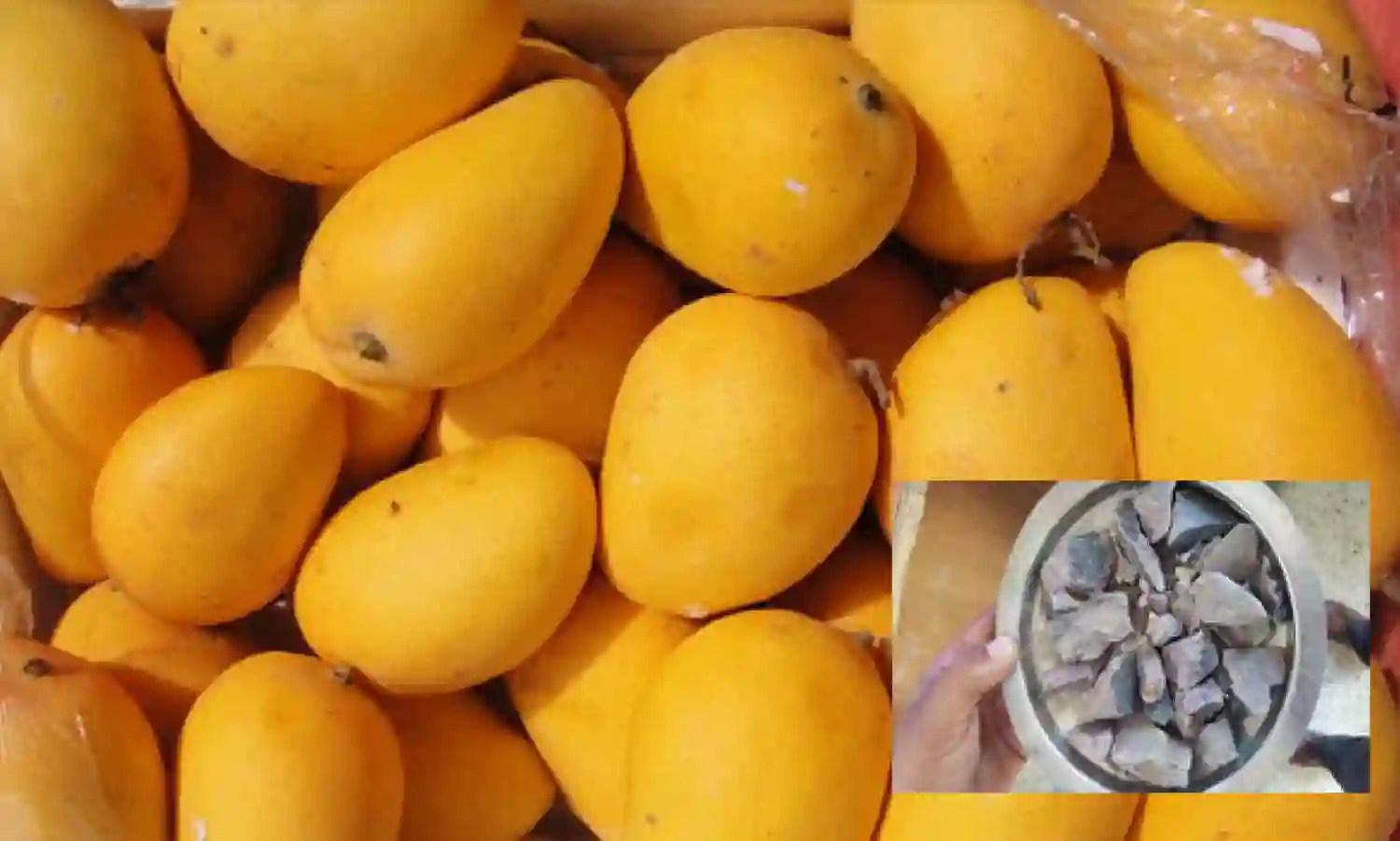NAFDAC warns against use of artificial methods to ripen fruit
"There have been clarion calls by well-meaning Nigerians on the need to take stringent regulatory actions to stem the dangerous tide of drug hawking and ripening of fruits with calcium carbide.";

The National Agency for Food and Drug Administration and Control (NAFDAC) has advised Nigerians to shun the dangerous practise of the sale and consumption of fruits artificially ripened with calcium carbide.
The agency also frowned against the illegal hawking of drugs on the open market because of its contribution to the rate of non-communicable diseases in the country.
The Director-General of NAFDAC, Prof. Moji Adeyeye, gave the advice at a sensitization workshop on the “Dangers of Drug Hawking and Ripening of Fruits with Carbide” organised for journalists in the South-West in Ibadan on Friday.
Adeyeye, represented by the Director, Chemical Evaluation and Research, Dr. Patrick Omopariola, urged Nigerians to stop eating fruits ripened with chemicals.
She said that ignorance of safe methods had led many people to adopt unhealthy practises, which had caused health issues and claimed the lives of many Nigerians.
“There have been clarion calls by well-meaning Nigerians on the need to take stringent regulatory actions to stem the dangerous tide of drug hawking and the ripening of fruits with calcium carbide.
“In addition, several national dailies and non-governmental organisations have raised concerns about the looming danger and health implications of these two nefarious activities by certain unpatriotic and unscrupulous citizens in our country,” she said.
The NAFDAC boss charged participants to assume the role of champions in the vanguard of the campaign against drug hawking, the use of calcium carbide to ripen fruits, and other unsafe practises of food preservation.
She also said that the menace of drug hawking posed a serious challenge to the healthcare delivery system in the country and underscored NAFDAC’s resolute determination to totally eradicate the unwholesome practise.
“Drugs are sensitive, life-saving commodities that should not be sold on the streets, in motor parks, or in open markets just like any other article of trade.
“I wish to warn that any drug hawker arrested by NAFDAC will be prosecuted, and our enforcement officers are currently carrying out a synchronised nation-wide operation.
“No offender will be spared from facing the full wrath of the law,” Adeyeye said.
According to her, drug hawkers are also the major distributors and suppliers of narcotic medicines to criminal networks, such as bandits, insurgents, kidnappers, and armed robbers.
“Drug hawkers constitute a serious threat to our national security,” she further said.
In a presentation, the Director of Food Safety and Applied Nutrition in the agency, Mrs. Eva Edwards, highlighted the dangers of food fraud and its impacts on public health.
Edwards said that at least 200,000 Nigerians, including pregnant women and children under age five, die annually from consuming contaminated food, hence the need for awareness-raising on food safety.
In a personal remark, Omopariola said that the dangers of using artificial methods to ripen fruits include loss of vitamins and micronutrients and consumption of dangerous chemicals, such as Arsenic, which is carcinogenic, and phosphorus, which can lead to health issues and death.
He identified Calcium Carbide, Acetylene, Ethephon, ethylene, and Ethylene glycol as the five most commonly used artificial ripeners in the country.
According to him, there are safe alternatives, and Nigerians should embrace them.

